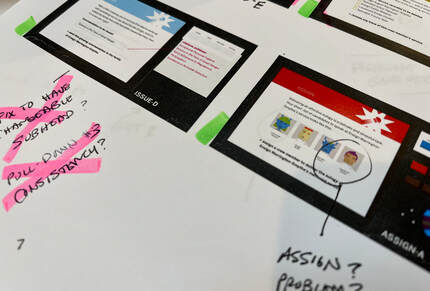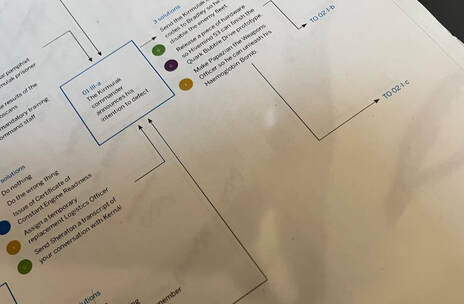|
Yes! We haven't posted in a while, but the good news is that's because we’ve been hard at work on HRO. Excellent progress has been made and we’re super-jazzed about the quality and the scope of the project! We’ll have news soon about the revised projected release date and hope you’ll stay tuned for that. But today I wanted to write about a recent change in development philosophy that Eric and I have decided to embrace. I love structure. I love systems. I love the rational framework for decision-making that modularity encourages. When we first started HRO we thought we’d lean into the modular thing — as a scope-control strategy and as a programming aesthetic. And this approach worked really well for us in the first half of the development process. It gave us some boundaries and helped us organize our thinking around how the stories in the game were told and how the player interacted with our universe. Eric constructed an elegant system where a single Unity scene would load a JSON at the start of each of the potential 43 Acts in the game — populating it with Act-specific conversations, characters, functionality, content and player options. JSONs were built from spreadsheets where the data for each Act was plugged in. So far, so minimalist — and so good But eventually, the wheels came off. Regimented systems are, by definition, uniform and unbending, so they're also brittle. To tell the stories we wanted to tell, we started to make exceptions. The 8 solution pre-fabs — where the players take the specific actions needed to move the story down the different narrative paths — turned into 17, and then 22 and then shot up north of 50 as we figured out that the modular structure limited the range of player choice too severely to tell our stories. They were hardly “pre-fabs” at all when many of them were built and used only once… They were just "fabs," I guess. Some practical considerations also reared their ugly heads as we got further into the weeds. Data about the choices players made in each Act — choices which change the course of the story — were difficult to carry forward. Eric also tells me that stringing together the branching story Acts with this system would have been very challenging — not to mention getting the game to save a player's progress… And in the end we were still making compromises to get content to fit within the rigid structure. So we took a moment to step back, retrench and retool. Instead, we’re going old-school. We’ve created unique Unity scenes for each Act in the game, which can be proofed and tailored to our heart’s content. It’s more work maybe to plug all the content in manually, but it promises to make the implementation easier in the end and the functioning of the game more predictable. Plus this kind of “plug-in” work is dumb enough that even I can do it, freeing Eric for the more programming-savvy tasks. Wish us luck as we move into the final phases of development.
0 Comments
|
AUTHORWorthing and Moncrieff, LLC is an independent developer of video game stories founded in 2015. ARCHIVES
December 2022
|


 RSS Feed
RSS Feed
